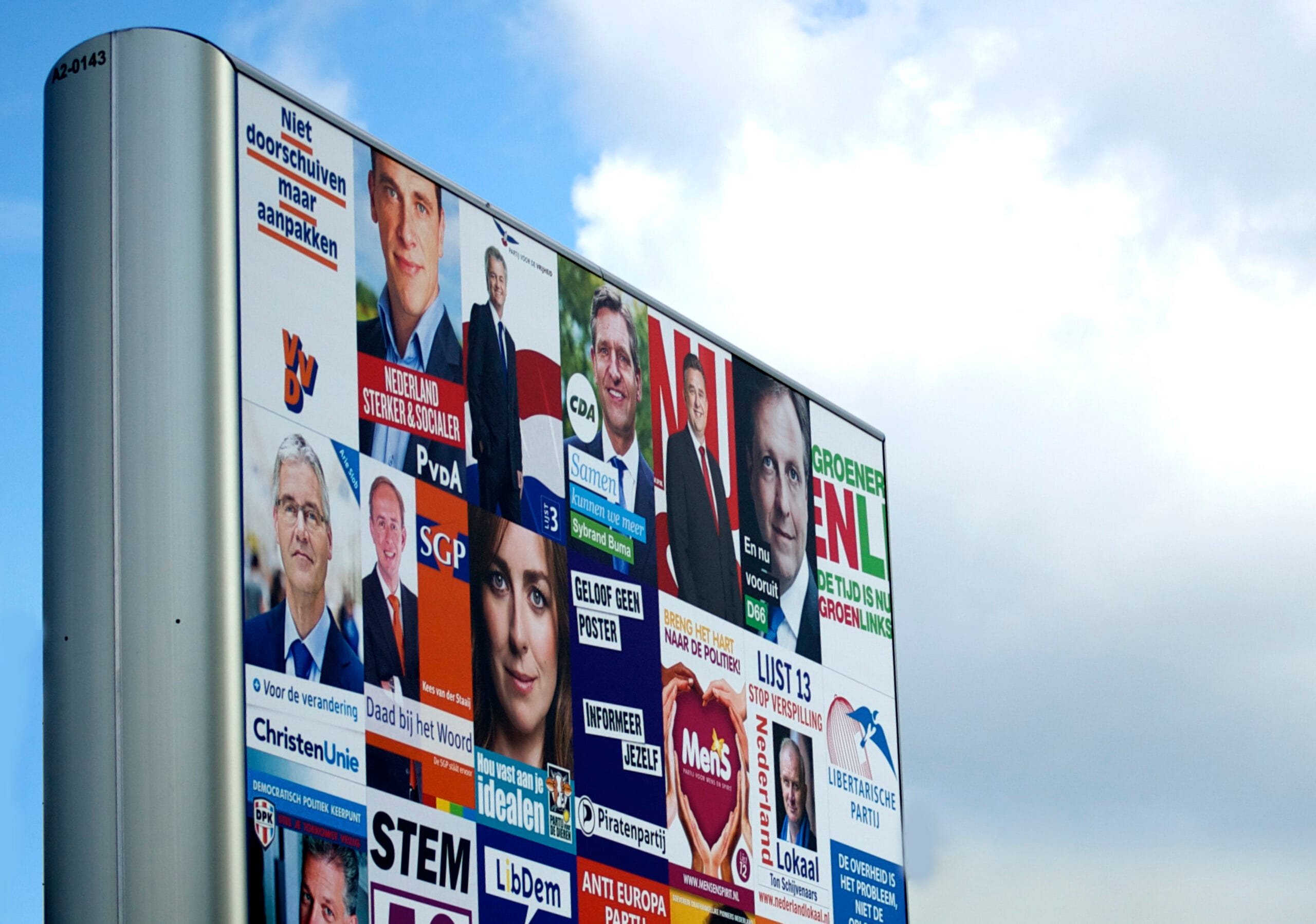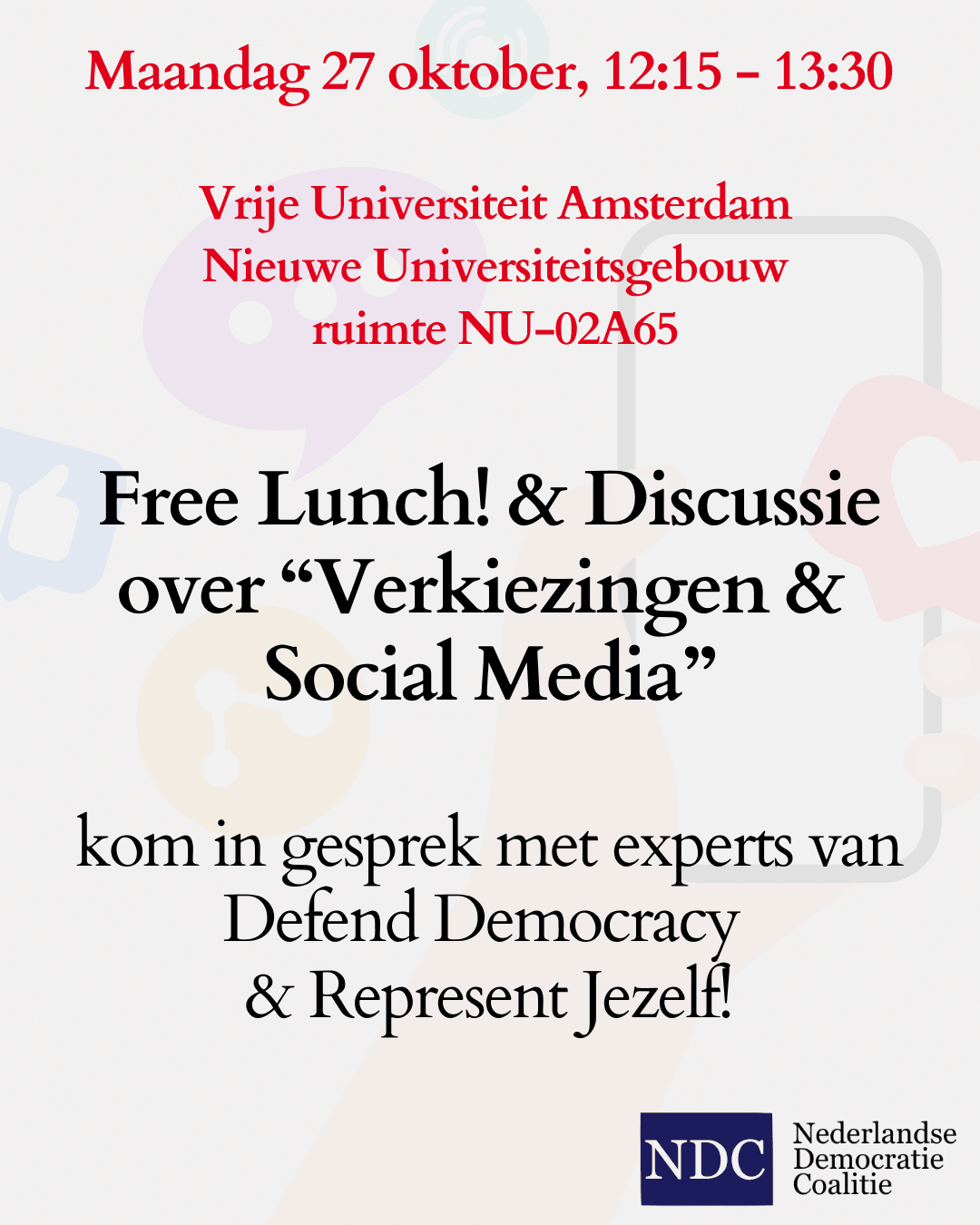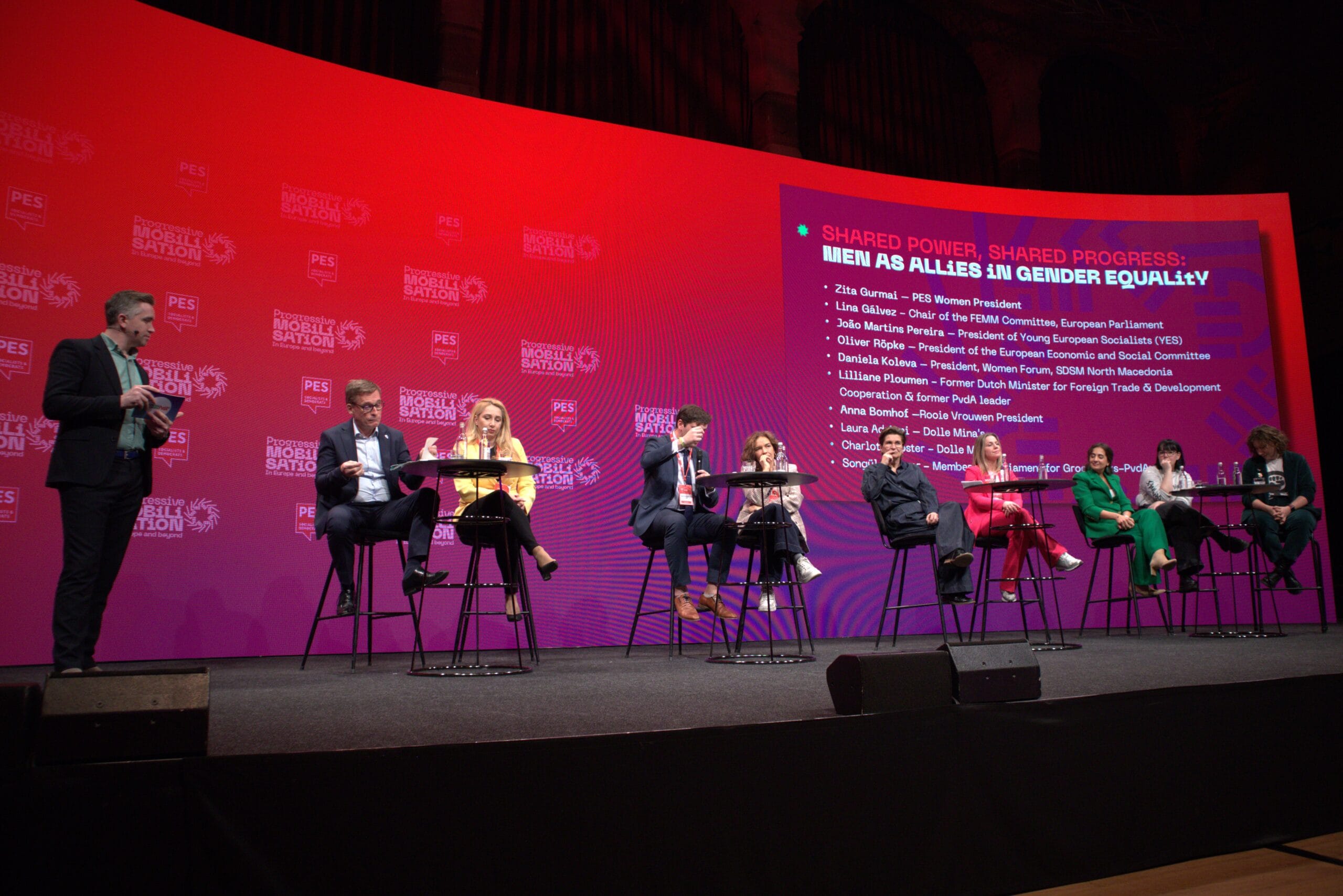The European Parliament elections are coming up. Also on 6 June, Green-Left-PvdA will appear on the ballot paper with a shared list in which 'green' and 'red' come together. In the run-up to these elections, we therefore speak to several GL-PvdA candidates. In this interview Lara Sibbing - number 16 on the list - about a sustainable food transition, food security in Europe, but most of all about her bicycle ride through rural Europe.
Lara calls in from a somewhat noisy café in Puenta la Reina, in northern Spain. "There are a lot of walkers here heading towards Santiago de Compostella. They like a few drinks in the evening. Those can be a bit heavy after a whole day of walking". She had cycled across the Pyrenees from Dordogne in the previous days. "Snow, high winds. But I am used to this, my bike ride from Colombia to Chile in 2022 was spicier".

Photo: Lara on her way to Spain, past the snowy peaks of the Pyrenees
The bicycle as inspiration
So the question is, why? "On a bike, you see so much. I have always combined cycling with my work as a policymaker. You can only do the latter properly if you also seek out the field. From the bike, you see what's in the fields, what the farms look like and you get people's stories. In France, I cycled past rolling hills with cattle and fruit. Now in Spain, I pass olive trees, vineyards and kiwi orchards."
But not only flora is the subject of the bike tour. "Reversed place name signs, diversions due to protests and talks highlight that farmers are protesting all over Europe, including here in France and Spain."
"Snow, high winds. But I am used to this, my bike ride from Colombia to Chile in 2022 was spicier."
"Not looking at farmers and bees, but prices"
The protests and the huge size of some agricultural plots with the same monocultures like maize and wheat over and over again, confirm the need for a new vision of food and agricultural policy in the Union. This is what Lara has been pushing for for years as a food policy expert, and now on the Green Left-PvdA EP list. "We in the Netherlands and the EU are hugely focused on growth. For years, our farmers have only had to produce more and more to keep their heads above water. That direction is of course easy to explain from the past, but is now a dead end. We need to look differently: at broad quality. That means rewarding our farmers not only for direct products, but also for the social and ecological products and services they provide. Much more than the little extra they get now if they do meadow bird management, for example."
"A sustainable food system for farmers and nature can only be achieved if you reward products and services fairly and price pollution fairly. Food production currently involves a lot of hidden costs. We don't charge for them, but they end up on the plate of nature, animals or workers. So we should make polluters pay fairly."
"In addition, we need regulations that, instead of just farmers, make the whole chain responsible - from feed suppliers to supermarkets. A very nice proposal for such a sustainable chain approach is already on the table: the Sustainable Food System Law, part of the Green Deal. It has now been put on hold by Von der Leyen (President of the EU Commission, ed.), but should be back on the agenda as soon as possible."
This legislation also has a focus on the Union's international role. "This law also states that products from outside Europe must be sustainably produced to enter the European market. That cuts both ways: no more unfair competition for our farmers, so they can work sustainably, and stimulating sustainability inside and outside Europe. But we must be careful that the European border does not become a high fence for low- and middle-income countries that do not (yet) produce sustainably. We prevent that with fair international trade policy, which allows countries to, for instance, grow cocoa more sustainably and process it into chocolate."


Photo left: Reversed place name signs in France | Photo right: tractor blockades in Spain
Inflation?
In her work - including years as a food transition policy advisor for various governments - Lara encountered many benevolent farmers. "But farmers cannot go green if they are in the red. Take a litre of milk, for example. We also want meadow birds with that, a beautiful landscape, and a nice life for the cow. But we pretty much only pay for the milk. If we start rewarding sustainable farmers for these services and let polluters bear the costs, we will make our policy future-proof again. That way, our farmers can simply move forward again for at least 50 years".
"We need to reward our farmers not only for products, but also for the social and environmental services they provide."
But then inflation. Don't the prices of our food become sky-high when social and environmental costs become part of the price? "This is going incredibly wrong now. Government policy in the Netherlands and the EU is completely inadequately designed to encourage healthy, varied eating. There is no fair reward and pricing. In Europe, we can use the gigantic bag of money from the Common Agricultural Policy - a third of the Union's total budget - much more efficiently. That way, we can encourage more sustainable production and consumption and make healthy food affordable. For example, did you know that public money is still used to promote meat eating? No longer of our time. We must design agricultural food subsidies in such a way that polluters no longer receive money and healthy food becomes affordable for people and the environment. As GL-PvdA, we always let more sustainable food go hand in hand with affordable, healthy food."
Food security and sovereignty
With a war in Europe, the EU's geopolitical position is not more secure, to say the least. Can we make the sustainable transition now that food security and the autonomy of domestic food production seem to be becoming more important? "The idea that making our food system more sustainable harms the autonomy of European food production and food security is nonsense. Indeed, it is exactly the opposite. By becoming more sustainable and diversifying our consumption patterns, you actually strengthen the position of European food production."
As the noise level in the café increases, Lara continues her story. "Food security has been trotted out since the war in Ukraine as an occasional argument against sustainability. But making things more sustainable will strengthen our food security. Exceptionally dry, hot summers and soaking wet springs and autumns, causing crops to fail: these are the consequences of climate change that threaten our food security. At the moment, the quantity of food is not the problem. There is mainly a lot of inefficiency because we eat too much animal-based food. For one kilo of meat, you need ten kilos of grain. The first grain ship to leave Ukraine after the Russian port blockades went straight to the EU for fodder - and not to other countries in Africa facing huge grain shortages. The Netherlands is full of cut maize and ryegrass for cattle feed. We can use that space much better for food that goes directly to the plates of Dutch people."
"By becoming more sustainable and diversifying our consumption patterns, you actually strengthen the position of European food production."
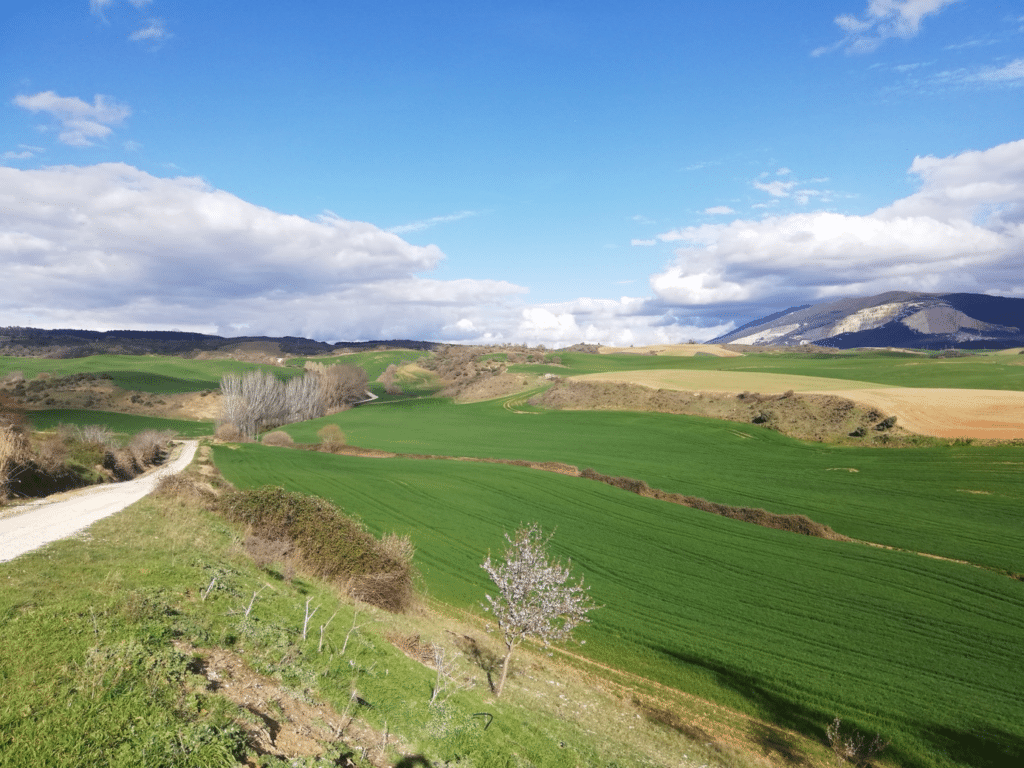
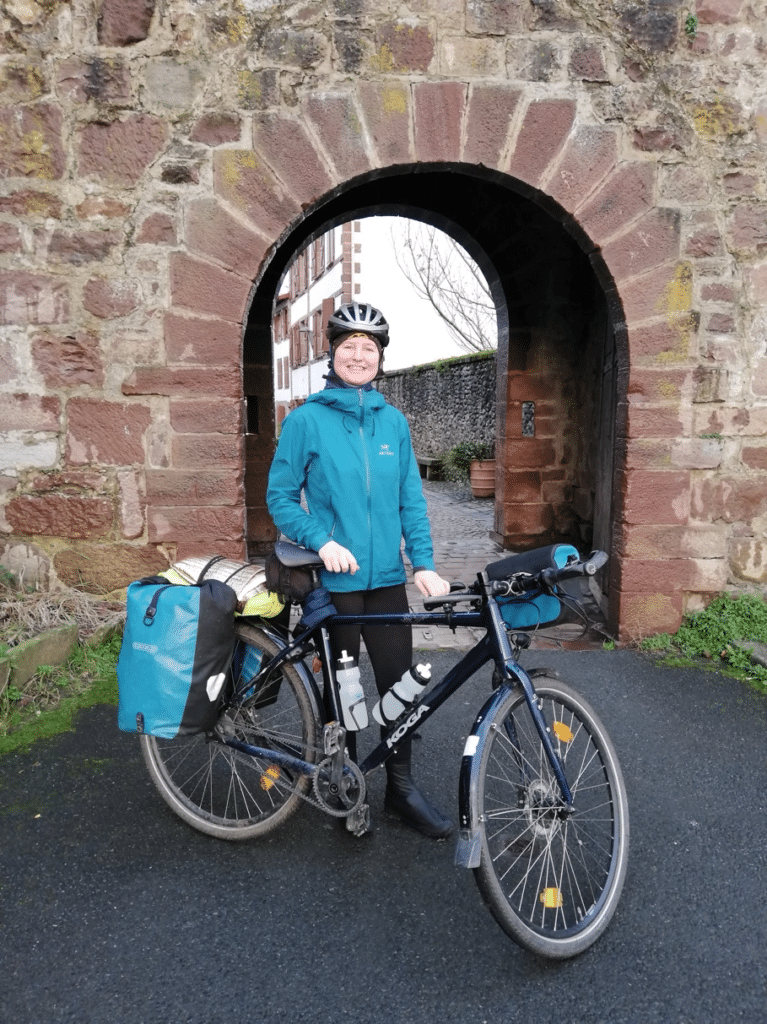
Photo left: "Only on a bicycle can you enjoy so many types of landscapes"
Photo right: Lara on the road in southern Europe. Soon also in the Netherlands!
Lobby not in interest of farmer
There are also serious concerns about lobbying practices within the Union. Large companies have a disproportionate influence on lobbying processes in the Union. "It is mindblowing How many lobbyists are running around in European institutions. This is the lobby of the giant fertiliser industry, these are feed companies, pesticide companies. Their revenue model is to sell as many products as possible to farmers. They are trying to maintain something that is no longer sustainable and, moreover, not at all in the interest of most farmers."
"We must reward and price fairly, make good food affordable, and our farmers must be able to continue farming sustainably. That is the honest story I will tell in the campaign."
Red and green together
Years of economies of scale and profit maximisation have created an unsustainable situation. This makes the future of our food in Europe pre-eminently an issue where 'red' and 'green' come together. Lara agrees. "You don't solve this in four-year cycles, it takes decades. That is why we need to start stable long-term policies as soon as possible. There are parties trying to maintain what has no future. But that is really short-term thinking. GroenLinks-PvdA has the honest story of what is good for farmers, consumers and nature, now and in the long term. Fair pricing, making good food affordable and allowing farmers to continue farming sustainably for generations. That is the honest story I will tell in the campaign."
And what are Lara's plans on cycling? "I will now cycle to Santiago de Compostella and then maybe head for Portugal. At the end of March, I will travel back to the Netherlands - with a stopover in Brussels, of course. In the Netherlands, I'll pick up the bike again, and will visit people all over the country during the campaign."
________________________________________________________________________________________________________
Would you like a visit from Lara in the run-up to the European elections to talk about her plans and those of GroenLinks-PvdA? She is happy to come by on her bike (and with a tent). Get in touch via larasibbing@gmail.com.
Follow Lara's journey through southern Europe - and later the Netherlands - via Instagram - where she posts regular updates on the different places she has visited. Do you have visiting tips for her in Spain or Portugal? Be sure to let us know!
Emiel Bongaerts - author of this article, also a cycling enthusiast - will cycle up the Alpe d'Huez six times in early June to raise money for the KWF Cancer Fund. Support this charity via https://www.opgevenisgeenoptie.nl/fundraisers/EmielBongaerts/alpe-dhuzes


